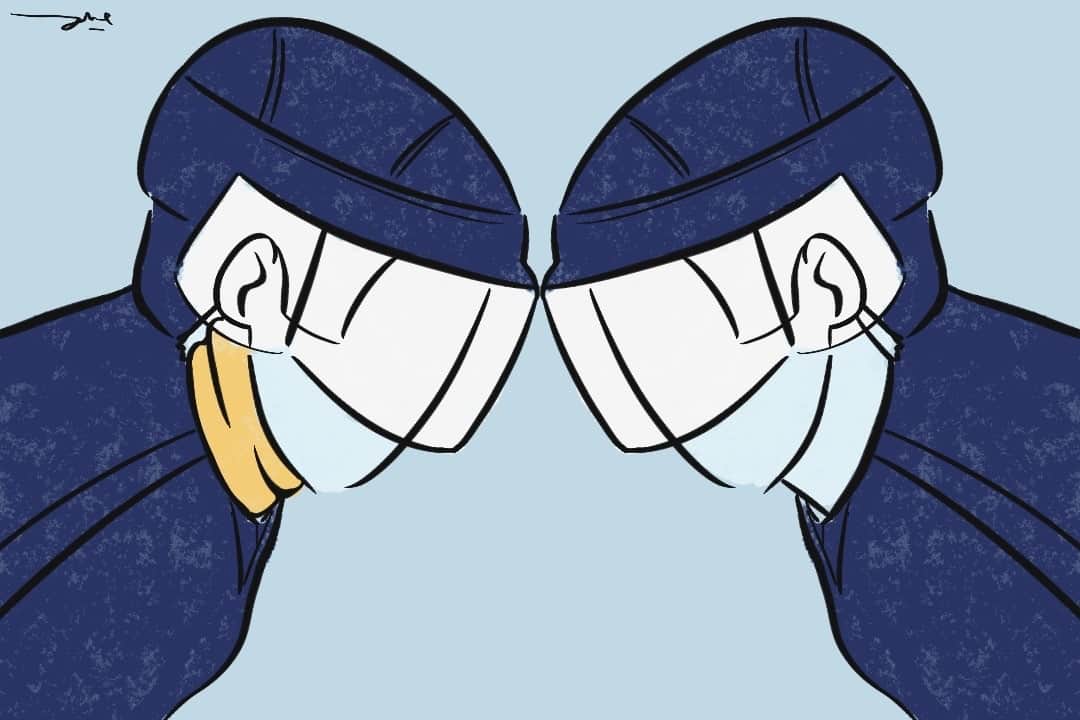On October 28, Nottingham Panthers and former Pittsburgh Penguins player Adam Johnson died after being cut on the neck with an ice skate during a game. Fans are carefully watching the NHL and other hockey leagues, anticipating a possible mandate for the use of neck guards to prevent future tragedies.
The lack of a mandate in the NHL
Gary Bettman, the commissioner of the NHL, seemed uncertain when answering questions on mandated neck guards in an interview with Pat McAfee on ESPN. Bettman claimed that the NHL has recommended that players wear neck protection; however, the league has not mandated the use of neck guards.
Johnson’s accident was not the first of its kind, as Clint Malarchuk and Richard Zednik both sustained injuries to their neck during their careers — though both lived through the injury. Bettman claimed that mandating neck guards is “an ongoing discussion,” but why did this discussion not happen after Malarchuck and Zednik’s injuries? Without a mandate, many hockey players will continue to play without proper equipment, which may lead to further tragedies.
What are teams and players saying?
With Johnson’s death, some players and teams are beginning to take safety on the ice more seriously. Washington Capitals winger T. J. Oshie has not only been wearing neck guards on the ice since the accident, but has also spoken to the media about the importance of wearing neck protection. “For youth, I’d hope [my wearing a guard] shows that it’s really not a distraction from my game. I thought I played pretty decent tonight. Honestly, it was actually really comfortable,” Oshie said in an interview with The Hockey News.
Oshie is the founder of Warroad, a hockey company that focuses on creating equipment built to protect players while ensuring a player’s performance will not be jeopardized. Oshie claimed he had received around “100 messages” from players trying to learn more about his neck guards.
Several other players, including Pittsburgh Penguins players Erik Karlsson, Lars Eller, Ryan Graves, and Marcus Pettersson, and Winnipeg Jets players Vladislav Namestnikov, Rasmus Kupari, Cole Perfetti, and Nikolaj Ehlers, have worn neck guards during practice. Calgary Flames captain Mikael Backlund believes that wearing them would be an adjustment but that players would also eventually adapt to the equipment.
While some players and teams may not actively be wearing neck guards at this point, many are willing and open to discussing and learning more about the topic. Toronto Maple Leafs captain John Tavares said in an interview: “That’s certainly probably an aspect that needs to continue to be looked at further, as one incident like that is too many.”
What have other hockey leagues done?
Countless hockey leagues have begun to mandate neck guards. The Professional Women’s Hockey League has been discussing the use of neck guards and whether to mandate them before games begin in January 2024. The English Ice Hockey Association has also announced that they will require neck guards starting at the beginning of 2024. Notably, Hockey Canada — the national governing body for ice hockey in Canada — had already required that players in its national women’s program wear neck guards; however, it does not require its senior national men’s team to wear the protection.
Finally, Ontario University Athletics (OUA) has now mandated throat protection in men’s ice hockey, and neck guards have been mandated in women’s ice hockey since the 2018–2019 season. The regulation states that if a player “enters the playing surface without wearing a neck guard [they] will be immediately ordered off the playing surface.” Sportscaster Darren Dreger explained that the OUA had planned on introducing neck guards into the league at some point, but with Johnson’s death, the process was sped up to ensure the safety of the players.
One thing for certain is that it is incredibly important to protect our hockey players, ensuring that the sport can be enjoyed by many players without fear that it is unsafe. As hockey leagues across the world continue to learn more about hockey safety, fans will continue watching the sport cautiously until a mandate is finally put into place.



No comments to display.